What's next after Bridgerton? 5 romance series ripe for TV adaptation
- Written by Jodi McAlister, Lecturer in Writing, Literature and Culture, Deakin University
Bridgerton, Netflix’s lush adaptation of Julia Quinn’s historical romance series, has been viewed by 63 million households since its December 25 premiere, and is Netflix’s fifth biggest original series debut.
On the surface, this is unsurprising — Bridgerton is executive produced by Shonda Rhimes, the mastermind behind hit shows Scandal (2012-18) and Grey’s Anatomy (2005–).
But Bridgerton is also unusual. Its source material is a mass market romance series, a genre largely ignored for screen adaptation.
There are several likely reasons why TV has snubbed romance fiction.
Although a billion-dollar industry, romance fiction is regularly dismissed as trashy, formulaic, and poorly written by people ill-acquainted with the genre.
Additionally, romance series usually feature a different central couple each book. This constant change of the protagonists is difficult to map to a TV series format, and is a challenge Bridgerton will need to navigate in future seasons, as each of the eight Bridgerton siblings has their time in the sun as a romantic lead.
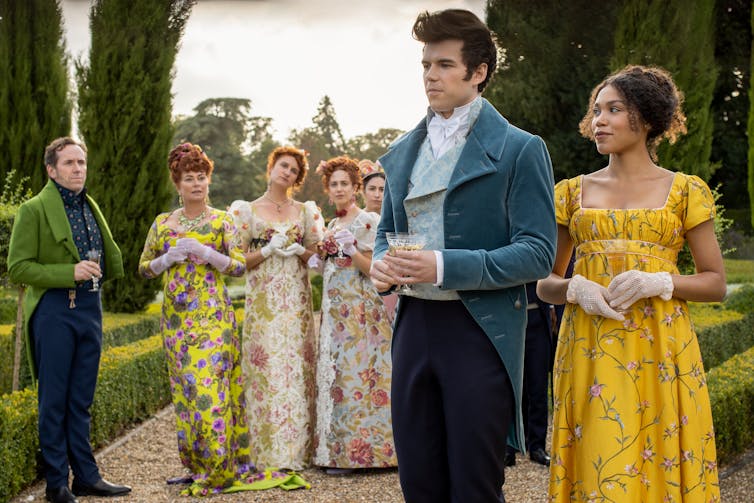 Romance fiction moves towards happy endings – unlike most television series, which likes to keep the romantic tension in play.
Nick Briggs/Netflix
Romance fiction moves towards happy endings – unlike most television series, which likes to keep the romantic tension in play.
Nick Briggs/Netflix
But the disregard of romance fiction is short-sighted. There is a clear market for romance adaptations.
Starz’ Outlander (2014–), based on Diana Gabaldon’s books, is entering its sixth season. Netflix has also produced Virgin River (2019–) and Sweet Magnolias (2020–), based on the series by Robyn Carr and Sherryl Woods, respectively. There is even the streaming service Passionflix dedicated specifically to romance adaptations.
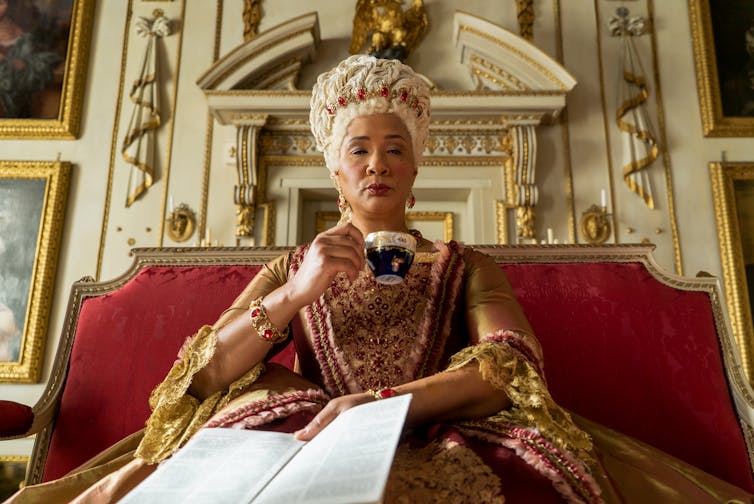 Bridgerton is playful with history – Queen Charlotte is played by Golda Rosheuvel.
Liam Daniel/Netflix
Bridgerton is playful with history – Queen Charlotte is played by Golda Rosheuvel.
Liam Daniel/Netflix
But Bridgerton seems to represent a tipping point. It has provoked an enormous amount of commentary: on diversity in casting (romantic hero Simon is reimagined as a Black man, and many other roles are played by people of colour), its historical accuracy (to which it has a playful relation – a string version of Ariana Grande’s Thank U Next plays early in the first episode), its relationship to 18th and 19th century romances (Bridgerton is very much not Jane Austen), and its problematic depiction of consent (heroine Daphne significantly violates hero Simon’s consent in one sex scene).
There is clearly a considerable appetite for more material adapted from romance fiction. So what other romance series are ripe for adaptation? Here are my five top picks.
Read more: To the mattresses: a defence of romance fiction
The Brothers Sinister, Courtney Milan
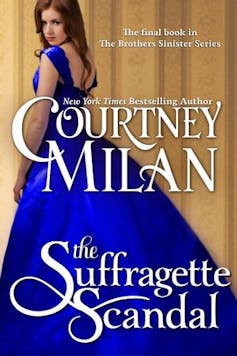 Just as each of Quinn’s Bridgerton books follows a different sibling, each book in Milan’s series follows a different member of the Brothers Sinister (Robert, Oliver, Sebastian and honorary member Violet), a club of friends who are all left-handed.
Set in Victorian Britain, these books pair deeply emotional romance with serious social issues and a strong feminist agenda: one heroine is a suffragette, another a brilliant scientist struggling to find a way for her work to be recognised.
Psy-Changeling, Nalini Singh
Just as each of Quinn’s Bridgerton books follows a different sibling, each book in Milan’s series follows a different member of the Brothers Sinister (Robert, Oliver, Sebastian and honorary member Violet), a club of friends who are all left-handed.
Set in Victorian Britain, these books pair deeply emotional romance with serious social issues and a strong feminist agenda: one heroine is a suffragette, another a brilliant scientist struggling to find a way for her work to be recognised.
Psy-Changeling, Nalini Singh
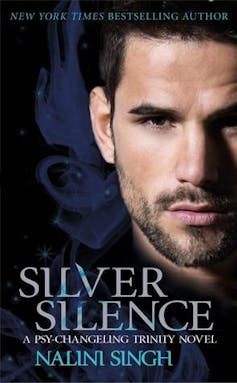 This iconic paranormal romance series by New Zealand author Nalini Singh is set in a fantasy world with three races: the Psy, who have immense mental powers but have been conditioned to eliminate emotions; the Changelings, shapeshifters characterised by passionate emotionality; and humans, caught in the battle between the two.
Each book features a new romance within or between members of the three groups, as well as an overarching fantasy plot which spans the series.
Forbidden Hearts, Alisha Rai
This iconic paranormal romance series by New Zealand author Nalini Singh is set in a fantasy world with three races: the Psy, who have immense mental powers but have been conditioned to eliminate emotions; the Changelings, shapeshifters characterised by passionate emotionality; and humans, caught in the battle between the two.
Each book features a new romance within or between members of the three groups, as well as an overarching fantasy plot which spans the series.
Forbidden Hearts, Alisha Rai
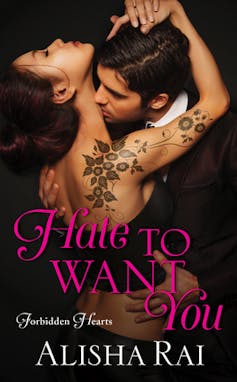 Rai’s trilogy of contemporary romance novels features a broad soap operatic framing. Once upon a time, the Chandlers and the Oka-Kanes ran a supermarket chain together. In the aftermath of an accident, the Chandlers cut out the Oka-Kanes.
A generation later, dynastic animosity persists, making the protagonists of the first book Hate to Want You, Nicholas Chandler and Livvy Kane, a kind of modern-day Romeo and Juliet. As the series progresses, we not only see three individual couples fall in love, but the two families work to heal the deep rift between them.
Reluctant Royals, Alyssa Cole
Rai’s trilogy of contemporary romance novels features a broad soap operatic framing. Once upon a time, the Chandlers and the Oka-Kanes ran a supermarket chain together. In the aftermath of an accident, the Chandlers cut out the Oka-Kanes.
A generation later, dynastic animosity persists, making the protagonists of the first book Hate to Want You, Nicholas Chandler and Livvy Kane, a kind of modern-day Romeo and Juliet. As the series progresses, we not only see three individual couples fall in love, but the two families work to heal the deep rift between them.
Reluctant Royals, Alyssa Cole
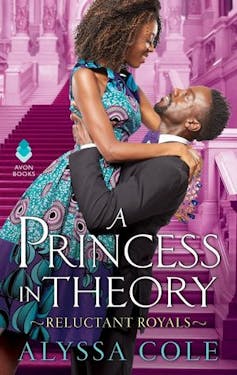 Alyssa Cole is currently one of the biggest names in romance fiction.
The Reluctant Royals books are contemporary royal romances: in the first book, A Princess in Theory, heroine Naledi is astonished to find that what she thought was a Nigerian prince scam email was in fact from a real-life African prince to whom she is unknowingly betrothed. The series comprises three novels and two novellas - the novella Once Ghosted, Twice Shy, where royal secretary Likotsi reunites with the woman who broke her heart, is a particular highlight.
Cole’s Loyal League trilogy of historical thrillers set during the US Civil War, focusing on spies seeking to undermine the Confederacy, could also make a brilliant transition to the small screen.
Captive Prince, CS Pacat
Alyssa Cole is currently one of the biggest names in romance fiction.
The Reluctant Royals books are contemporary royal romances: in the first book, A Princess in Theory, heroine Naledi is astonished to find that what she thought was a Nigerian prince scam email was in fact from a real-life African prince to whom she is unknowingly betrothed. The series comprises three novels and two novellas - the novella Once Ghosted, Twice Shy, where royal secretary Likotsi reunites with the woman who broke her heart, is a particular highlight.
Cole’s Loyal League trilogy of historical thrillers set during the US Civil War, focusing on spies seeking to undermine the Confederacy, could also make a brilliant transition to the small screen.
Captive Prince, CS Pacat
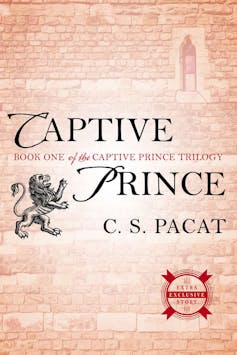 Unlike the series listed above, where each book follows a different couple, this fantasy romance trilogy by Australian author CS Pacat follows one couple throughout.
Damen, the eponymous captive prince, has been usurped and sent as a slave to the prince of an enemy nation, the icy, dangerous Laurent. The two princes have every reason to hate each other, even when they form an uneasy alliance, but they’re drawn to each other just the same. Their relationship is complex and prickly, burning slowly across the course of the series, leading to an epic conclusion, both personally and politically.
Unlike the series listed above, where each book follows a different couple, this fantasy romance trilogy by Australian author CS Pacat follows one couple throughout.
Damen, the eponymous captive prince, has been usurped and sent as a slave to the prince of an enemy nation, the icy, dangerous Laurent. The two princes have every reason to hate each other, even when they form an uneasy alliance, but they’re drawn to each other just the same. Their relationship is complex and prickly, burning slowly across the course of the series, leading to an epic conclusion, both personally and politically.
Authors: Jodi McAlister, Lecturer in Writing, Literature and Culture, Deakin University





